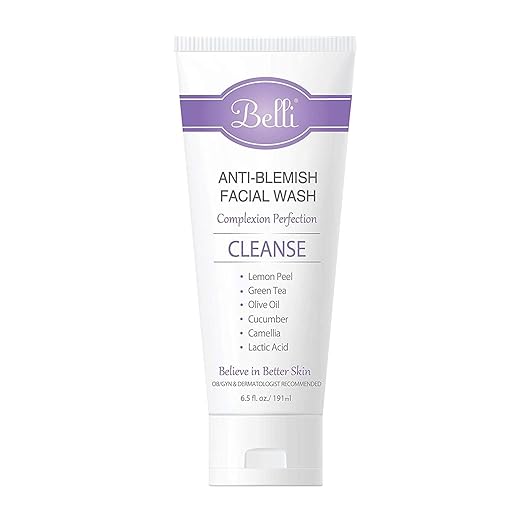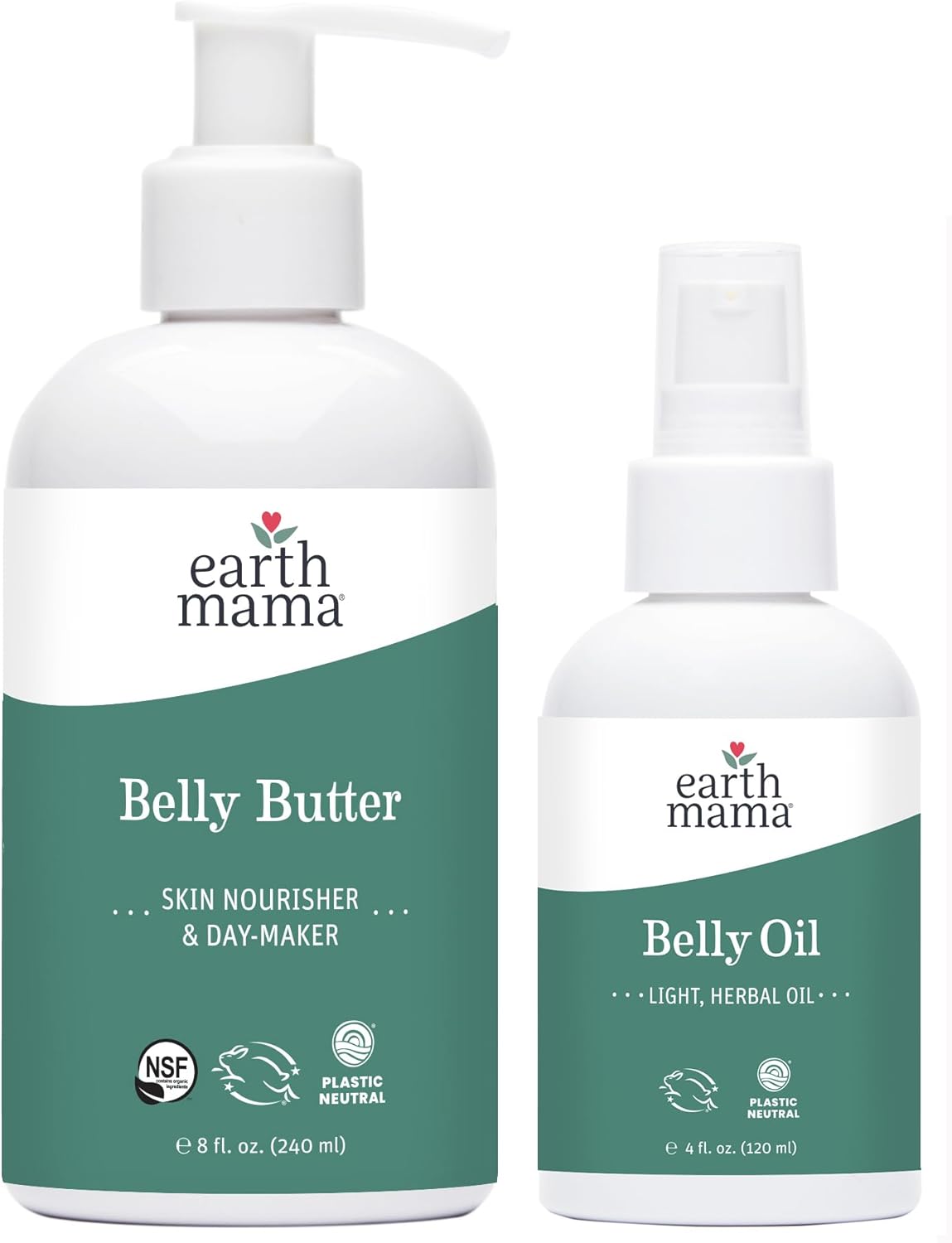Top 15 Best Pregnancy Skincare Products 2025: Ultimate Guide to Safe Solutions with Reviews
Pregnancy brings many changes to a woman's body, and skin is no exception. The hormonal fluctuations during these nine months can lead to various skin concerns, from hyperpigmentation to acne breakouts. While enjoying this beautiful journey, it's crucial to understand how to adapt your skincare routine to ensure both maternal and fetal safety. This comprehensive guide addresses common pregnancy skin issues, safe ingredients, products to avoid, and recommended solutions.
Understanding Pregnancy Skin Changes
During pregnancy, elevated hormone levels, particularly estrogen and progesterone, significantly impact the skin. According to research published in the Journal of Dermatological Science, up to 90% of pregnant women experience noticeable skin changes.
Common Skin Issues During Pregnancy
- Melasma (Pregnancy Mask): Dark patches appearing on the forehead, cheeks, and upper lip, affecting 50-70% of pregnant women according to the American Academy of Dermatology.
- Stretch Marks: These appear as the skin stretches to accommodate the growing baby, typically on the abdomen, breasts, and thighs.
- Acne: Hormonal fluctuations can trigger breakouts even in women who rarely experienced acne before pregnancy.
- Skin Sensitivity: Many women report increased skin sensitivity during pregnancy.
- Dry or Oily Skin: Hormonal changes may alter your skin's natural moisture balance.
Safe vs. Unsafe Skincare Ingredients During Pregnancy
Ingredients to Avoid
Research from the American College of Obstetricians and Gynecologists recommends avoiding these ingredients during pregnancy:
- Retinoids (Retin-A, Accutane): These vitamin A derivatives can cause birth defects when used orally, and topical use is also discouraged.
- Salicylic Acid (in high concentrations): While small amounts in face wash are generally considered safe, high-concentration peels should be avoided.
- Hydroquinone: This skin-lightening agent has higher absorption rates and unknown effects on fetal development.
- Phthalates: Found in many fragranced products, these chemicals may disrupt hormone function.
- Formaldehyde: Present in some hair straightening treatments and nail polishes.
For more detailed information on ingredient safety during pregnancy, you can refer to this comprehensive resource on pregnancy-safe skincare ingredients.
Safe Alternatives
- Alpha Hydroxy Acids (AHAs) in low concentrations: Glycolic acid and lactic acid (under 10%) are generally considered safe for treating acne and hyperpigmentation.
- Vitamin C: A powerful antioxidant that helps with collagen production and treating hyperpigmentation.
- Hyaluronic Acid: A natural substance that hydrates without causing harm.
- Peptides: These amino acid chains help build collagen and elastin without penetrating deep into the skin.
- Niacinamide: A form of vitamin B3 that addresses hyperpigmentation and inflammation.
Essential Skincare Routine During Pregnancy
Morning Routine
- Gentle Cleansing: Start with a sulfate-free, fragrance-free cleanser suitable for your skin type.
- Antioxidant Protection: Apply a pregnancy-safe vitamin C serum to protect against environmental damage and help with hyperpigmentation.
- Hydration: Use a hyaluronic acid serum if your skin feels dehydrated.
- Moisturize: Choose a non-comedogenic moisturizer appropriate for your skin type.
- Sun Protection: Apply broad-spectrum SPF 30+ sunscreen daily, as sun exposure can worsen melasma and hyperpigmentation.
Evening Routine
- Double Cleanse: Remove makeup and sunscreen with an oil-based cleanser, followed by a gentle water-based cleanser.
- Treatment: Apply pregnancy-safe treatment products targeting specific concerns like niacinamide for hyperpigmentation.
- Moisturize: Use a richer night cream if experiencing dryness.
- Targeted Solutions: Apply stretch mark prevention oil or cream to prone areas.
Managing Specific Pregnancy Skin Concerns
For Melasma
- Use broad-spectrum SPF 50+ sunscreen daily and reapply every two hours when outdoors
- Wear wide-brimmed hats and seek shade
- Consider products with niacinamide, vitamin C, and azelaic acid
- Avoid heat exposure, which can worsen melasma
For Acne
- Use gentle, non-drying cleansers
- Try products with glycolic acid (less than 10%), lactic acid, or azelaic acid
- Use non-comedogenic moisturizers
- Avoid picking or squeezing blemishes to prevent post-inflammatory hyperpigmentation
For Stretch Marks
According to a study published in the British Journal of Dermatology, while genetics play a significant role in stretch mark development, early intervention can help minimize their appearance:
- Start applying prevention products early (first trimester)
- Massage affected areas daily to improve circulation
- Stay hydrated by drinking plenty of water
- Maintain a healthy weight gain pace as recommended by your obstetrician
For Dry Skin
- Use lukewarm (not hot) water for showering and face washing
- Apply moisturizer to damp skin
- Consider a humidifier in dry environments
- Choose fragrance-free products to minimize irritation
15 Recommended Pregnancy-Safe Skincare Products
- CeraVe Hydrating Facial Cleanser: Fragrance-free, non-comedogenic cleanser with ceramides and hyaluronic acid.
- Belli Beauty Anti-Blemish Facial Wash: Specifically formulated for pregnancy acne with lactic acid and green tea.
- Biossance Squalane + Vitamin C Rose Oil: Pregnancy-safe vitamin C formulation with moisturizing squalane.
- Aveeno Positively Radiant Daily Moisturizer SPF 30: Non-comedogenic sunscreen moisturizer with soy complex for even skin tone.
- Neutrogena Hydro Boost Gel Cream: Hyaluronic acid-based moisturizer for extra-dry skin.
- Palmer's Cocoa Butter Formula Massage Lotion for Stretch Marks: Contains vitamin E, collagen, and elastin to improve skin elasticity.
- Earth Mama Belly Butter: Organic formula with herbs and oils traditionally used for stretching skin.
- The Ordinary Niacinamide 10% + Zinc 1%: Addresses uneven skin tone and blemishes safely during pregnancy.
- La Roche-Posay Anthelios Melt-In Milk Sunscreen SPF 60: High-protection, fragrance-free formula ideal for preventing melasma.
- Honest Company Organic Belly Balm: Plant-based oils and butters to soothe and moisturize growing bellies.
- Bio-Oil Skincare Oil: Helps improve the appearance of scars, stretch marks, and uneven skin tone.
- Burt's Bees Mama Belly Butter: Clean, mineral oil-free formula with renewable sugarcane-derived squalane.
- Vanicream Gentle Facial Cleanser: Extremely gentle formula free of common irritants.
- Cetaphil Gentle Skin Cleanser: pH-balanced, non-irritating cleanser suitable for sensitive skin.
- Mustela Stretch Marks Cream: Clinically tested formula with natural ingredients including avocado peptides.
Consulting Healthcare Providers
Always consult with your obstetrician or dermatologist before introducing new skincare products during pregnancy. What works for one person may not be suitable for another, and individual health conditions may affect recommendations.
According to the Mayo Clinic's pregnancy skincare guidelines, it's particularly important to discuss any prescription treatments or procedures with your healthcare provider.
Post-Pregnancy Skincare Considerations
Many skin changes resolve after delivery, but some may persist. Melasma often fades but may not completely disappear. Stretch marks typically fade from purple to silver or white over time.
If breastfeeding, continue to be cautious with skincare ingredients as some can pass into breast milk. The La Leche League International provides resources on safe skincare during breastfeeding.
Conclusion
Pregnancy is a time of significant change for your body and skin. By understanding these changes and adapting your skincare routine accordingly, you can safely manage skin concerns while protecting your baby's health. Remember that many pregnancy-related skin changes are temporary, and the priority during this special time is the health of both mother and baby.
Embrace this journey with informed skincare choices, and don't hesitate to seek professional advice for persistent or concerning skin issues. With proper care and patience, you can maintain healthy skin throughout your pregnancy and beyond.
Some of the links in this post are affiliate links, meaning we may earn a small commission if you purchase through them. This helps support our work and allows us to continue providing quality content. As an Amazon Associate, I earn from qualifying purchases. Thank you for your support!















